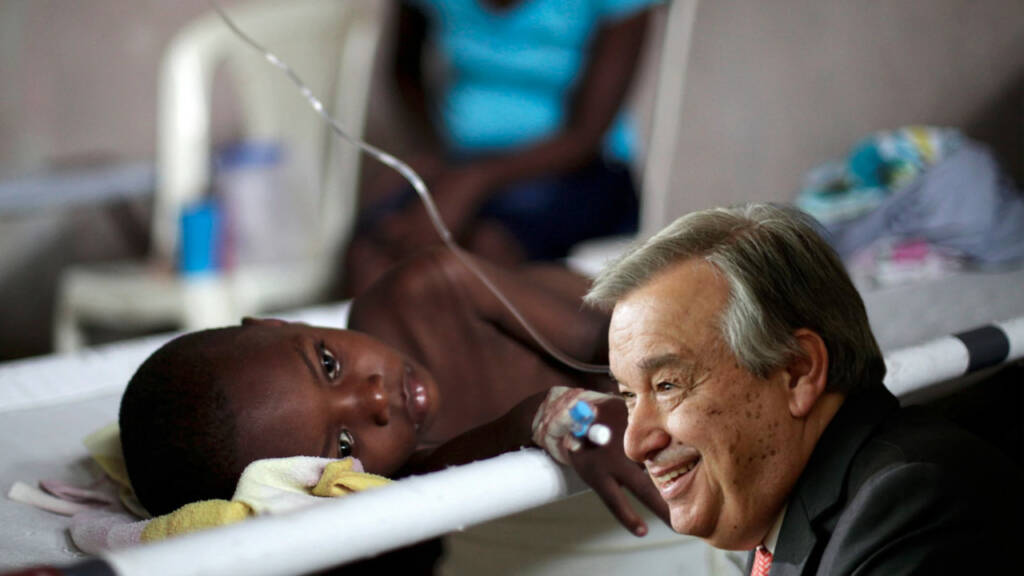After more than 3 years of no or minuscule cases, the upcoming news of rising Cholera cases in Haiti is extremely worrying. For the first time in 3 years, people in Haiti have been dying of Cholera. This is raising serious concerns and is bringing back memories of an epidemic that killed nearly 10,000 a decade ago.
UN gave Haiti Cholera
U.N peacekeepers, deployed to Haiti after the 2010 earthquake, improperly disposed of sewage waste and contaminated a river that had set off an outbreak killing 10,000 people and sickening more than 820,000. Now, as Haiti has descended into crisis with gang violence raging in the country, the United Nations is mulling a request from Haiti’s West-backed government for “a specialized armed force” from abroad to quell the gang violence as per a report.
The crisis in Haiti had worsened after a coalition of gangs blocked the Varreux fuel terminal, and the lack of gas and diesel crippled transportation and forced businesses and hospitals to halt operations.
Fear of Cholera outbreak in Haiti
Now there’s fear in Haiti of another cholera outbreak as widespread gang control over vast swaths of the country is hindering access to fuel, clean drinking water and medical care. This leaves the Caribbean crisis confronting an unprecedented confluence of humanitarian and political crises.
Violent armed gangs, which are outraged at the West’s interference in their internal matters, at times are blocking the movement of critical humanitarian aid and other supplies and also blocking access to the main fuel terminal.
Gang blockades have prevented water trucks from resupplying some neighborhoods, and fuel is also needed to make city water pumps work, Guito Edouard, chief of Haiti’s sanitation agency, said at a news conference as reported by The Washington Post.
With all this, the fear of a cholera outbreak looms large as this is creating problems for controlling the disease which is spread from contaminated food or water.
Read More: A major civil uprising breaks out against Joe Biden-led US in Puerto Rico
Another UN mission to Haiti?
Now, the request from Haiti’s puppet government for “a specialized armed force” from abroad to quell the gang violence in the country has raised concerns among its citizens as it was a UN mission that brought cholera to Haiti more than a decade ago.
A 65-year-old former carpenter, Tabuto said, “They brought cholera to Haiti and they need to compensate us…It’s an injustice. It’s an unspeakable abuse.”
“They gave us cholera, they didn’t do anything to eradicate the cholera” and they are using its resurgence as a “pretext” to return, Mario Joseph, a Haitian lawyer who has helped lead efforts to seek redress for cholera victims said.
Further, the United Nations in 2016 had pledged $400 million in a “new approach to cholera,” but raised only 5 percent of the sum, while drawing criticism for failing to center victims in its decisions according to The Washington Post.
Thus, another UN mission to Haiti is bound to raise eyebrows, as Cholera was nonexistent in Haiti before it was introduced in 2010 by a contingent of U.N. peacekeepers.
Read More: UN wants Dominican Republic to clean after USA’s Haiti mess
Adding salt to its wound, the United Nations refused to acknowledge its role in the outbreak, even as scientific evidence piled up. In 2013, it also rejected compensation claims.
In 2016, the U.N. special rapporteur on extreme poverty and human rights condemned the organization. Later that year, then-Secretary General Ban Ki-moon apologized for the organization’s role in the outbreak, saying it blemished “the reputation of U.N. peacekeeping and the organization worldwide.”
He, then, announced a “new approach,” promising $400 million in funding. Five years later, it has raised only $21.8 million.
The UN’s failure to keep its promises has been blamed for the resurgence of Cholera in Haiti, and victims and their advocates have criticized the United Nations for opting for community-based projects instead of direct compensation to victims as reported by The Washington Post.
https://www.youtube.com/watch?v=UIZfu31lZRI&ab_channel=TFIGlobal-Caribbean
